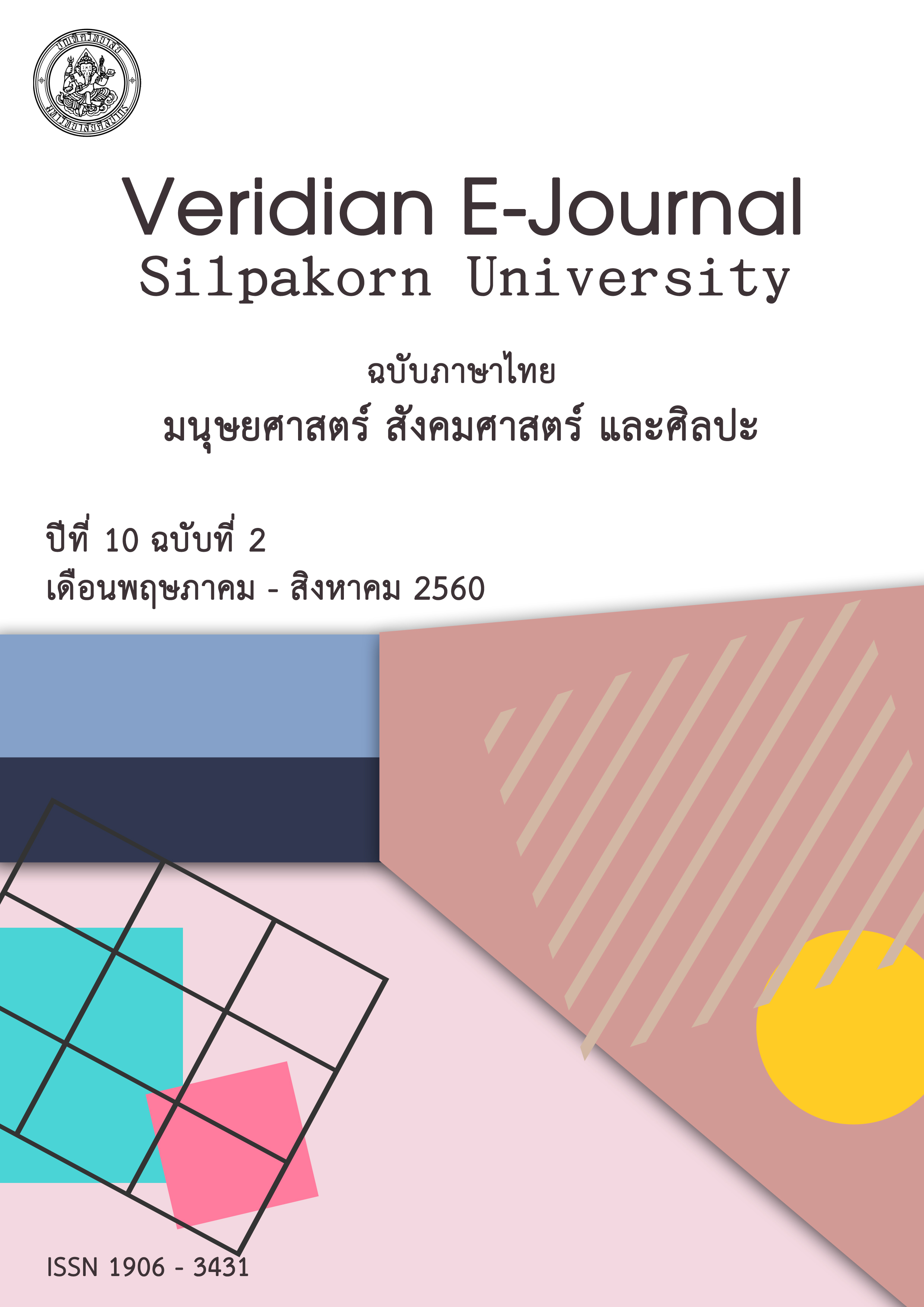แนวทางการพัฒนาระบบบริหารจัดการน้ำเพื่อการเกษตรยั่งยืนกรณีศึกษา : ตำบลท่ากระเสริม อำเภอน้ำพอง จังหวัดขอนแก่น
Main Article Content
Abstract
บทความวิจัยนี้ มีวัตถุประสงค์เพื่อ 1) เพื่อศึกษาระบบการบริหารจัดการน้ำ ตำบลท่ากระเสริม อำเภอน้ำพอง จังหวัดขอนแก่น 2) เพื่อศึกษาผลกระทบจากการบริหารจัดการน้ำ ตำบลท่ากระเสริม อำเภอน้ำพอง จังหวัดขอนแก่น และ3)เพื่อสังเคราะห์แนวการพัฒนาระบบการบริหารจัดการน้ำที่เหมาะสมยั่งยืนในพื้นที่ตำบลท่ากระเสริม โดยวิธีการวิจัยทั้งการค้นคว้าเอกสาร และการสัมภาษณ์ มีกลุ่มผู้ให้ข้อมูลทั้งหมด 28 คน แบ่งเป็น เจ้าหน้าที่รัฐ 6 คน และเกษตรกรผู้ใช้น้ำ 22 คน จากผลการวิจัยพบว่า ระบบการบริหารจัดการน้ำ มี 2 ระบบ คือ 1) น้ำจากคลองชลประทาน และ2) โครงการสูบน้ำด้วยกระแสไฟฟ้า ซึ่งเกิดผลกระทบ 4 ด้าน คือ 1) ด้านเศรษฐกิจ 2) ด้านสังคม 3) ด้านวัฒนธรรม และ 4) ด้านสิ่งแวดล้อม ประเด็นเหล่านี้ส่งผลกระทบโดยตรงต่อรายได้ของเกษตรกร นอกจากนั้นยังก่อให้เกิดความขัดแย้งที่เกิดจากการแย่งทรัพยากรน้ำ อนึ่ง ผู้วิจัยสามารถสังเคราะห์แนวทางการพัฒนาระบบการบริหารจัดการน้ำเพื่อการเกษตรยั่งยืน ได้เป็น 5 ประเด็นคือ 1) จัดทำยุทธศาสตร์การบริหารจัดการน้ำร่วมกัน 2) เพิ่มศักยภาพการบริหารจัดการน้ำโดยชุมชน 3) จัดทำข้อมูลสารสนเทศและการประชาสัมพันธ์ 4) เสริมสร้างกลไกการมีส่วนร่วมในการแก้ไขความขัดแย้ง และ 5) ส่งเสริมการปลูกพืชใช้น้ำน้อย
Purposes of this research article are : 1) to study the water management system in the area of Tha Khraserm Sub-district, Nam Phong District, Khon Kaen Province, 2) to examine the direct and indirect impacts of the aforementioned water management system, and 3) to create the guideline for the sustainable development of the aforementioned water management system. The research methodology consisted the literature review, interviewing of 28 concerned population to the water management 6 government officials and 22 farmers under the service area of the aforementioned water management system). Result of this research revealed that 2 water management system : 1) used the water from the irrigation canal and 2) the electricity pumping station were affected by the results of the water management in 4 aspects : 1) economic, 2) social, 3) culture, and 4) environment. Furthermore, the mentioned impacts were considered as the factors for the problems of the farmers’ income as well as the conflict caused by the water struggle among them. The researcher had therefore recommended the guidelines for the development of the water management system for the sustainable agriculture system in 5 aspects as follows : 1) the creating of strategy on collaborative water management system, 2) the enhancing of community’s capacity in water management system , 3) the creating of database on information and public relation, 4) the enhancing of participation-based collaboration system for the conflict management ,and 5) the promoting of less water cultivation.

